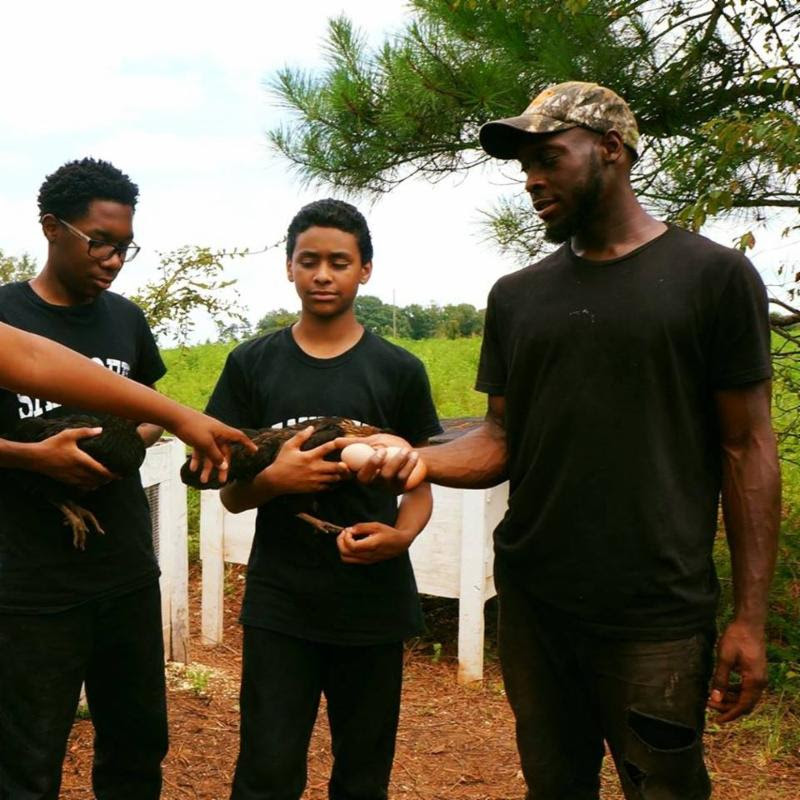Talar Hso (left) discusses the oral history project that the teens are conducting in conjunction with a folklorist at UNC. Not only are they learning more about their own culture, food, and history, but they’re also gaining skills in interviewing, documentary filmmaking, and public speaking.
“What does food justice mean to you?”
The Transplanting Traditions Youth Collaborative posed that question to a packed house at the Chapel Hill Public Library in late June. It was the perfect opener for the second installment of Farmer Foodshare’s “Learn with Us Speaker Series: Understand the Legacy of Race in Farming,” a lively discussion and presentation run entirely by the group’s teen members. It was broadcast on Facebook Live, but if you missed it, you can watch the whole thing now (and you should)!
WATCH NOW!
Transplanting Traditions’ mission is provide refugee adults and youth access to land, healthy food and agricultural and entrepreneurial opportunities, and Farmer Foodshare partners with them through our Community Foodshare program. The Transplanting Traditions Youth Collaborative has been built from the ground up by the youth involved, and through Community Foodshare and additional opportunities for community engagement, they’re able to translate family recipes, prepare foods for sampling, and actively promote broader access to the traditional Asian vegetables grown in our local community.
Watch the teens’ inspiring presentation HERE!
Sofia Thein (right) explains the significance of the farm as a space for community-building and describes the mental health benefits the refugees experience from being able to grow familiar types of food in their new home.
What does food justice mean to you?
Farmer Foodshare’s Whitney Sewell introduces Farmer Foodshare’s role in supporting the work of farmers and organizations like Transplanting Traditions.








